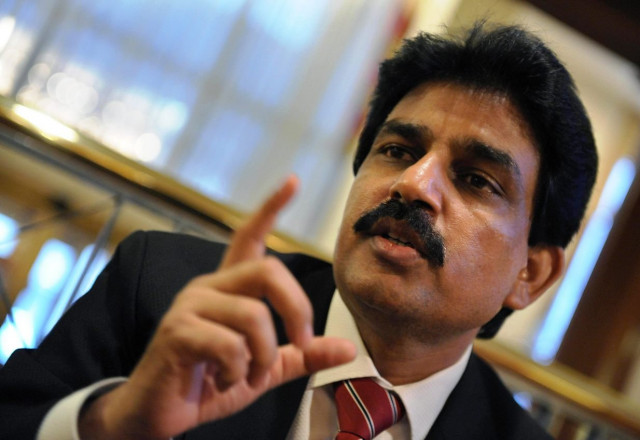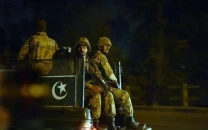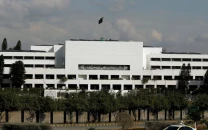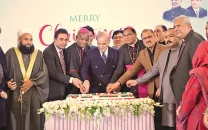Blasphemy law: Minorities minister fears he is “highest target”
Minorities minister Shahbaz Bhatti says he has been receiving death threats since the Aasia Bibi case.

"During this Bibi case I constantly received death threats. Since the assassination of Salmaan Taseer... these messages are coming to me even publicly," Bhatti told AFP.
Bhatti and his allies say the law against defamation of the Prophet Mohammed (pbuh) is often used to settle petty disputes, and human rights activists say the act encourages extremism in a nation already besieged by Taliban attacks.
But in the face of huge public support for the law, the government has said it has no plans to change it.
Bhatti said fatwas, or religious decrees, had been issued calling for him to be beheaded, by extremist clerics in the country who were allowed to publicly spread messages of violence with impunity.
"The government should register cases against all those using hate speeches," said Bhatti, who insists he will work as usual despite the threats.
"I'm not talking about special security arrangements. We need to stand against these forces of terrorism because they're terrorising the country.
"I cannot trust on security.... I believe that protection can come only from heaven, so these bodyguards can't save you."
During a visit to Pakistan to meet senior leaders in Islamabad Wednesday, US Vice President Joe Biden expressed concern over the widespread support for Taseer's killing.
Offering condolences, he said: "The governor was killed simply because he was a voice for tolerance and understanding. To state the obvious, there is no justification, none, for such senseless acts. ...Societies that tolerate such actions end up being consumed by those actions."
Members of the main ruling Pakistan People's Party (PPP), to which Punjab provincial governor Taseer belonged, have slammed security failures that led to the shooting, after police apparently failed to try to overpower the gunman.
Police investigators say that Qadri had previously been screened over security concerns and banned from working in the elite protection force used to protect Taseer.
"We are investigating how he got deputed again for this special duty. Punjab police is also separately investigating this issue," senior police official Haroon Joya told AFP.
Intelligence officials told AFP that public bodyguards are screened every three years by several agencies, with religious views checked as part of the process.
Following the assassination of the governor, the officials said that all departments involved in public protection are reviewing security measures and rescreening anyone working with high profile officials and national leaders.
Liberal politicians in fear
The killing of a provincial governor by his bodyguard has heightened security fears among Pakistan's political liberals who say their voices are being drowned out by rising religious extremism.
Former information minister Sherry Rehman initiated the current controversy when she introduced a bill in November calling for an end to the death penalty for blasphemy.
"I'm sure everyone at the top is worried about this and concerned about the level of security we all have," said Rehman, speaking to AFP from her heavily-guarded home in Karachi, where 50,000 people rallied on Sunday hailing Qadri as a hero.
She said she uses her own private security company instead of public protection, and said they had advised her to stay at home and not to travel to the capital Islamabad.
"I'm not being foolish but I'm going to be rational," she said.
"I don't plan to turn away... I have put the bill in, it's not an extreme position like a repeal bill. They (extremists) can't decide what we think or speak."

















COMMENTS
Comments are moderated and generally will be posted if they are on-topic and not abusive.
For more information, please see our Comments FAQ